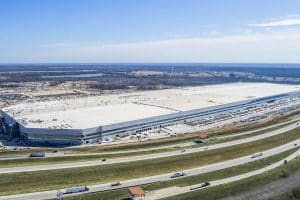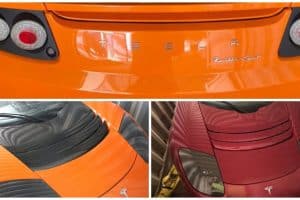- 🚗 Honda is investing US$11 billion in an electric vehicle (EV) supply chain in Canada, showing more commitment to fully electrified cars than any other Japanese automaker.
- 🏭 Honda plans to create a fully integrated vertical supply chain, from raw materials to batteries and EV production, in Canada.
- ⚡ Honda aims to manufacture 240,000 electric vehicles in its production plant in Alliston, Ontario, by 2028.
- 💼 Honda’s investments in Canada are expected to create 1,000 jobs in Ontario and more jobs across the country.
- ⏰ By 2030, Honda wants its entire car lineup to be electrified.
- 🔋 While other automakers are turning to hybrids due to slowing EV demand, Honda’s move in Canada contrasts with this, as the company believes electric vehicles will ultimately dominate the market.
- 🌎 Pure electric car makers like Tesla and Rivian continue to push for 100% EV adoption in the global auto market.
Honda’s recent announcement of a staggering $11 billion investment in an electric vehicle (EV) supply chain in Canada has sent shockwaves through the automotive industry. This bold move solidifies Honda’s position as a frontrunner in the race towards electrification, surpassing the commitments made by any other Japanese automaker.
A Fully Integrated EV Supply Chain
At the heart of Honda’s ambitious plan lies the creation of a fully integrated vertical supply chain, spanning raw materials, battery production, and complete EV manufacturing. By consolidating these critical components within the Canadian ecosystem, Honda aims to establish a robust and stable foundation for highly profitable EV production.
The centerpiece of this massive investment is Honda’s production plant in Alliston, Ontario, which is slated to manufacture an impressive 240,000 electric vehicles by 2028. This strategic move not only positions Honda as a major player in the Canadian EV market but also demonstrates its long-term commitment to the region’s automotive sector.
Job Creation and Economic Boost
Honda’s investments are poised to have a far-reaching impact on the Canadian economy, with the creation of thousands of new jobs. Initially, the company anticipates adding 1,000 positions in Ontario, but the ripple effects are expected to extend well beyond that, fostering employment opportunities across various sectors and regions.
François-Philippe Champagne, Canada’s Minister of Innovation, Science, and Industry, hailed the announcement as “the biggest in the history of Honda” and a “game-changer” for the nation’s automotive industry.
Bucking the Trend: Embracing EVs Over Hybrids
While some automakers are pivoting towards hybrid vehicles in response to slowing EV demand, Honda’s bold move in Canada stands in stark contrast. The company remains steadfast in its belief that electric vehicles will ultimately dominate the market, aligning with the global push towards sustainable transportation solutions.
Honda’s Global CEO, Toshihiro Mibe, underscored the strategic importance of this investment, stating that it will build a strong and stable foundation for highly profitable EV production.
Joining Forces with EV Pioneers
Honda’s commitment to electrification aligns it with the pioneers of the EV industry, such as Tesla and Rivian, who continue to champion the transition towards 100% electric vehicle adoption in the global auto market.
Elon Musk, CEO of Tesla, recently reiterated his company’s unwavering belief in the long-term dominance of EVs, stating, “As we all have seen, the EV adoption rate globally is under pressure, and a lot of other manufacturers are pulling back on EVs and pursuing plug-in hybrids instead. We believe this is not the right strategy, and electric vehicles will ultimately dominate the market.”
A Transformative Impact on the Automotive Landscape
Honda’s monumental investment in Canada’s EV supply chain is poised to have a transformative impact on the automotive landscape. By embracing electrification wholeheartedly and forging ahead with a vertically integrated supply chain, Honda is positioning itself at the forefront of the EV revolution.
This strategic move not only secures Honda’s place in the future of mobility but also serves as a catalyst for economic growth, job creation, and sustainable transportation solutions in Canada and beyond.
As the automotive industry continues to evolve, Honda’s bold commitment to EVs sets a powerful precedent, challenging other manufacturers to follow suit and accelerate the transition towards a greener, more sustainable future.





